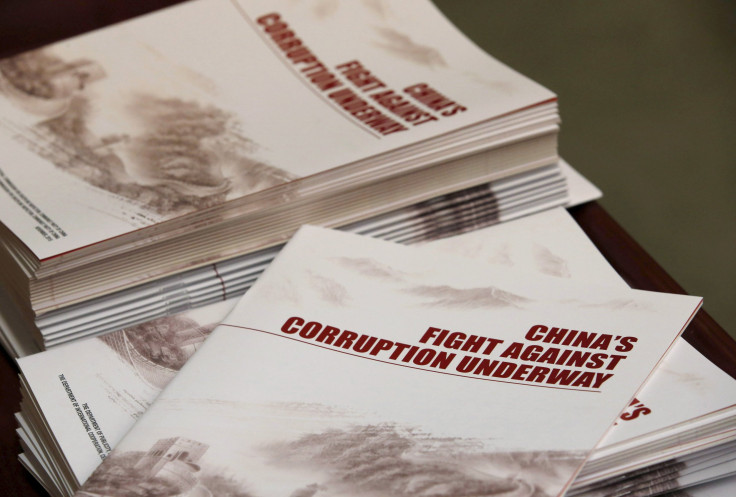China War On Corruption: Detainees Tortured To Admit To Taking Bribes, Human Rights Watch Says

China’s anti-corruption watchdog is committing “serious human rights abuses” to get detainees to confess to taking bribes, a Human Rights Watch (HRW) report alleged Tuesday. The report said detainees were subjected to “beatings, prolonged sleep deprivation, and being forced to stand or maintain uncomfortable positions for hours or even days.”
Chinese President Xi Jinping launched the war on corruption in 2012 and has since punished over a million Communist Party officials. Xi called the anti-corruption drive a “matter of life and death” for the party.
The opaque detention system used by the anti-corruption officials operates outside the country’s legal system under the leadership of the Central Commission for Discipline Inspection, the HRW said. At least 11 people have died while in detention, referred to as shuanggui -- which in Chinese means to report at a designated time and place. Detainees are held for days, weeks or months in unofficial holding facilities with their families unaware of their location. They are repeatedly questioned and tortured, the 102-page report claimed.
The rooms are equipped with special features like padded walls or are windowless to prevent the detainee from escaping or ending his/her life.
A former shuanggui detainee told Human Rights Watch: “If you sit you have to sit for 12 hours straight, if you stand then you have to stand for 12 hours as well. My legs became swollen, and my buttocks were raw and started oozing pus.”
Sophie Richardson, China director at Human Rights Watch, said in a statement, released with the report: “President Xi has built his anti-corruption campaign on an abusive and illegal detention system. Torturing suspects to confess won’t bring an end to corruption, but will end any confidence in China’s judicial system.”
“Eradicating corruption won’t be possible so long as the shuanggui system exists,” she added. “Every day this system threatens the lives of party members and underscores the abuses inherent in President Xi’s anti-corruption campaign.”
The detainees, who are deprived of water and food, are released once they confess to the crime after which they are convicted and then sentenced to a long jail term.
“In shuanggui corruption cases, the courts function as rubber stamps, lending credibility to an utterly illegal Communist Party process,” Richardson said. “Shuanggui not only further undermines China’s judiciary – it makes a mockery of it.”
© Copyright IBTimes 2024. All rights reserved.












